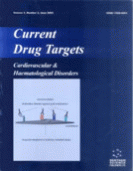Abstract
In the last decade, studies of the biological mechanisms underlying angiogenesis, i.e. the development of a new vasculature from pre-existing blood vessels, have suggested a new approach to peripheral obstructive artery disease based on the treatment of ischemic tissues with angiogenic growth factors. As demonstrated by experimental studies in animal models, a therapeutic effect can be reached as the newly formed vascular network, functioning as a biologic by-pass, restores a normal blood supply to the ischemic territories. New techniques of gene therapy proved effective in reaching sustained concentrations of angiogenic factors in the target tissues. This review concerns the pre-clinical background and the results of the early clinical trials of angiogenic gene therapy, which have shown the safety and feasibility of this new approach.
Keywords: angiogenesis, gene therapy, growth factors, peripheral arterial obstructive disease, clinical trial
 1
1













